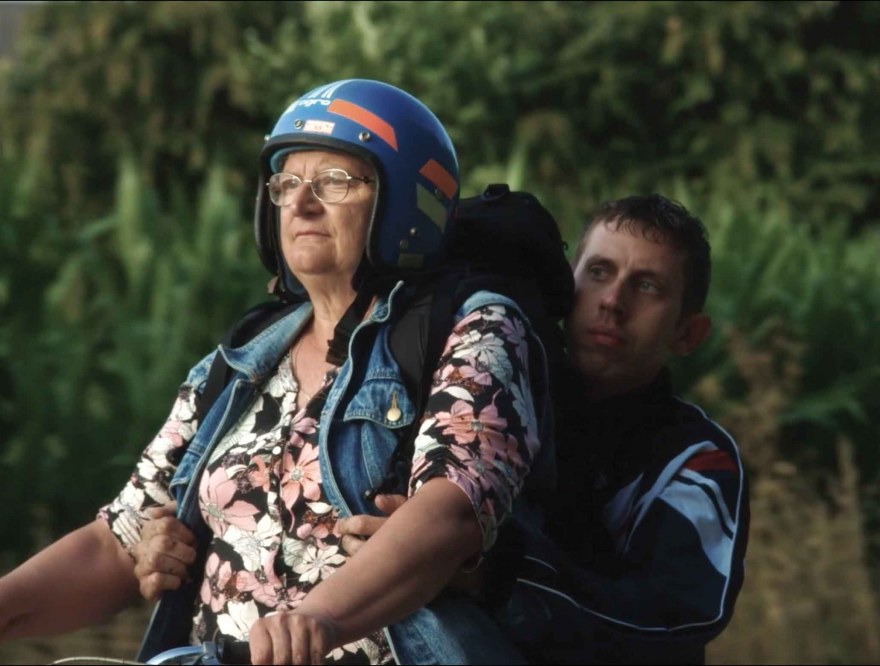Lunch with Claude libre
An interview with Thomas Buisson, director of Claude libre
>Where did you get the idea for the character Claude?
I got the idea for this character after hearing about a news item that took place in the south of France in 2012. A 70-year old man held up a horse race betting bar in his town and then fled on a bicycle. Everyone recognized him, and he stole only about 100 Euros. At first, this story really amused me. But after several rewrites, I felt I needed to meet this man in order to clarify what I wanted to do. Our meeting moved me greatly and I no longer wanted to laugh about his story. Then I met Marianne Garcia who took on the role of Claude and brought lots energy to the film.
What interested you in a rural setting?
I’m from Normandie and so I knew all the good places where we shot the film. Shooting in the countryside wasn’t particularly important for the narrative (the story could have taken place in a city) but this reassured me and helped a lot in location scouting.
In Claude libre, are you more interested in denouncing poverty or advocating freedom?
That’s an interesting question. In the beginning there was a real desire to speak about hardship for people at a certain age. It’s a film about getting-by but also about being marginalized and I wanted the audience to relish Claude’s freedom even if in the end we imagine that it was very brief. This idea didn’t come to me right away; it was suggested by Benoît Delépine.
Do you think that there is still such a thing as complete freedom, and do you plan to make other films on this subject?
I think the only place where complete freedom can really exist is within oneself and we need to do everything to safeguard this. With my producer, Arnaud Bruttin, we’re working on the financing for my next short film. The question of integrating the protagonist in his environment is key; it’s about creating his own inner freedom in order to cope with the aggression from the group that he wants to join.
Would you say that the short film format has given you any particular freedom?
Claude libre is my first short film: even if we received funding for the film, I felt free to fail which for me was a tremendous luxury. I think it’s because the business model for a short film is not the same as for a feature-length film and there’s not the same expectation to see how the film will perform at the box office. The pay TV channel OCS participated in funding the film and they told us that 17 minutes would be a good length. But this “constraint” enabled us, along with our editor, to make wise choices and render certain scenes more powerful.
Claude libre was shown in the National Competition.








